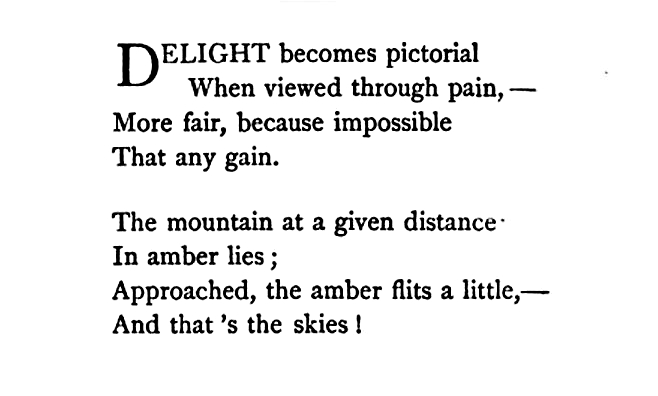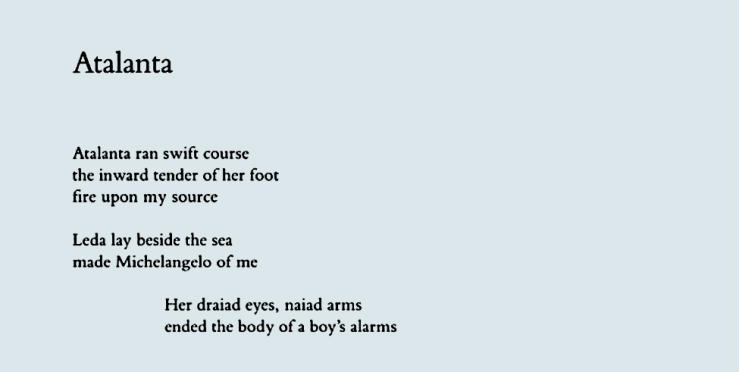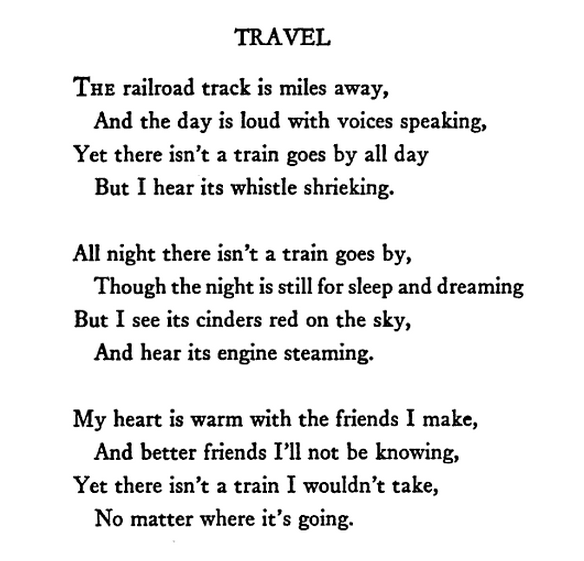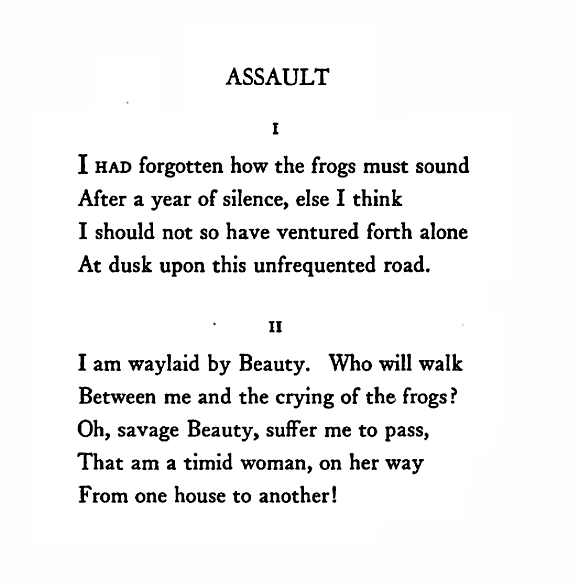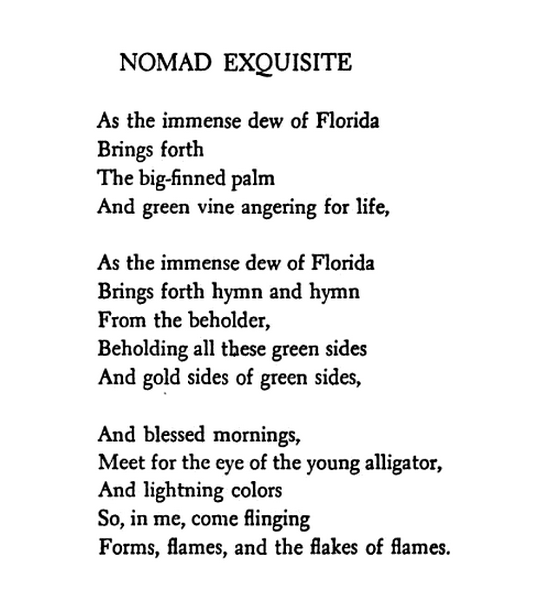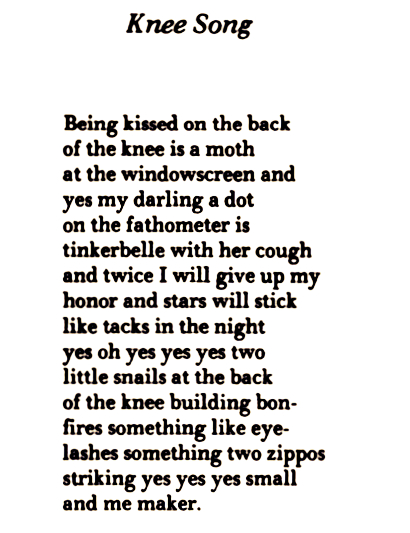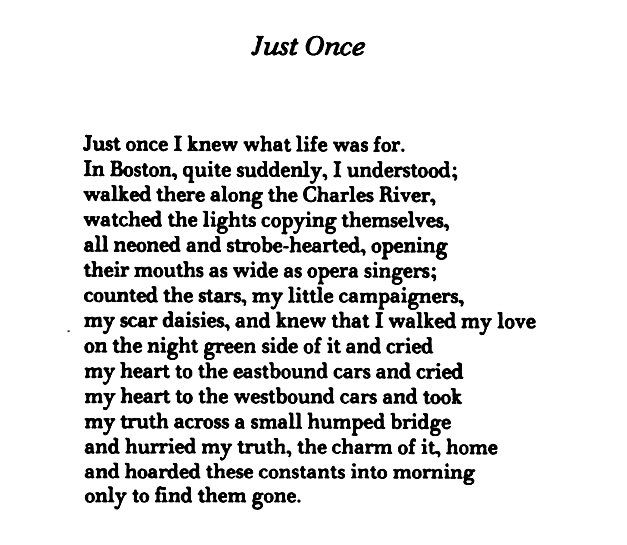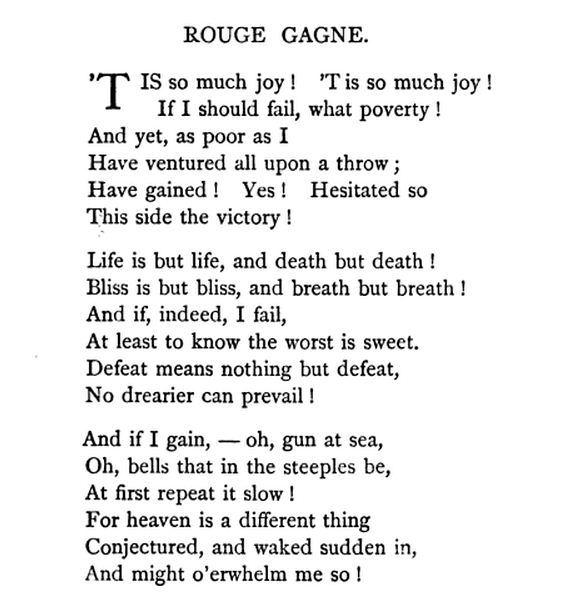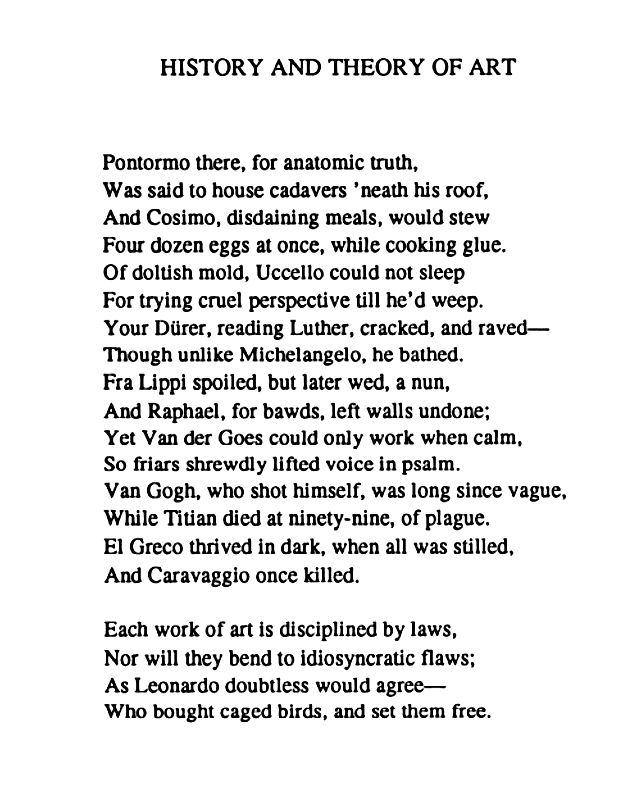“Christmas Eve” by Anne Sexton
Oh sharp diamond, my mother!
I could not count the cost
of all your faces, your moods-
that present that I lost.
Sweet girl, my deathbed,
my jewel-fingered lady,
your portrait flickered all night
by the bulbs of the tree.
Your face as calm as the moon
over a mannered sea,
presided at the family reunion,
the twelve grandchildren
you used to wear on your wrist,
a three-months-old baby,
a fat check you never wrote,
the red-haired toddler who danced the twist,
your aging daughters, each one a wife,
each one talking to the family cook,
each one avoiding your portrait,
each one aping your life.
Later, after the party,
after the house went to bed,
I sat up drinking the Christmas brandy,
watching your picture,
letting the tree move in and out of focus.
The bulbs vibrated.
They were a halo over your forehead.
Then they were a beehive,
blue, yellow, green, red;
each with its own juice, each hot and alive
stinging your face. But you did not move.
I continued to watch, forcing myself,
waiting, inexhaustible, thirty-five.
I wanted your eyes, like the shadows
of two small birds, to change.
But they did not age.
The smile that gathered me in, all wit,
all charm, was invincible.
Hour after hour I looked at your face
but I could not pull the roots out of it.
Then I watched how the sun hit your red sweater, your withered neck,
your badly painted flesh-pink skin.
You who led me by the nose, I saw you as you were.
Then I thought of your body
as one thinks of murder-
Then I said Mary-
Mary, Mary, forgive me
and then I touched a present for the child,
the last I bred before your death;
and then I touched my breast
and then I touched the floor
and then my breast again as if,
somehow, it were one of yours
